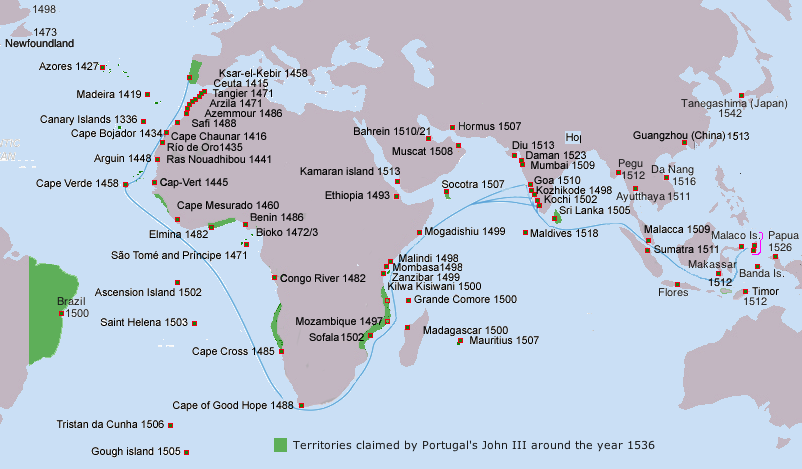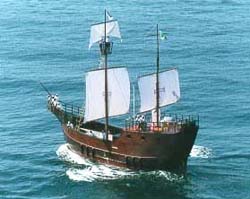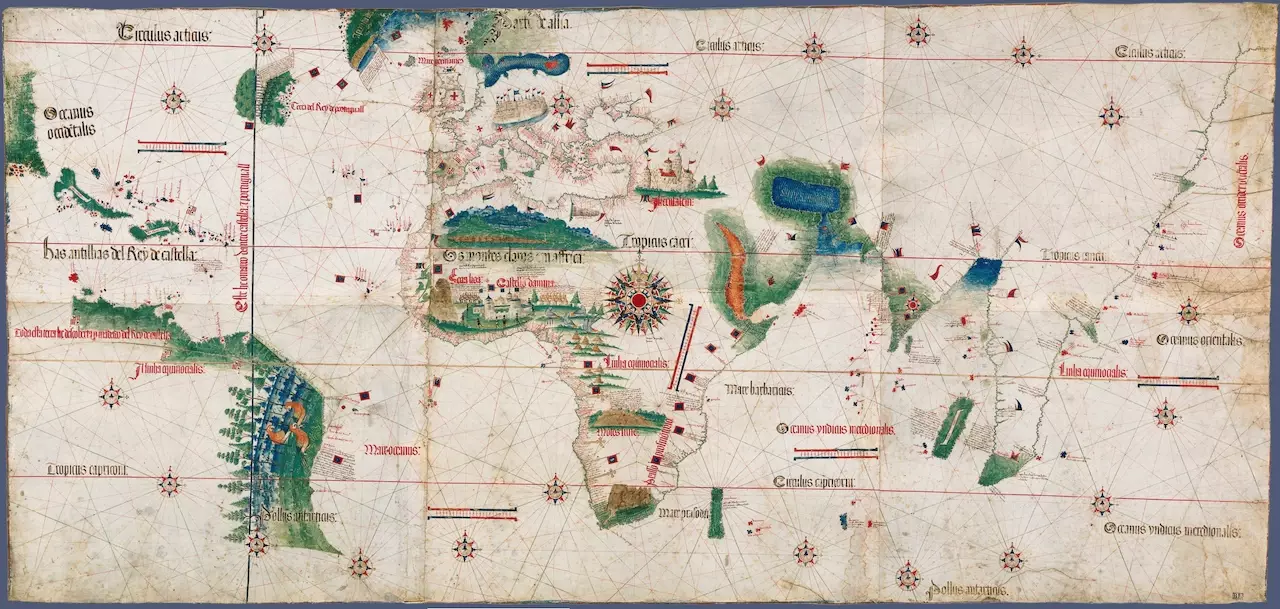Portuguese ahead of other Europeans in Africa and Asia
- Portuguese Maritime Trade
- Portuguese inland in Africa in the early 1500s
- Expansion and Slave Trading from Luanda

Portuguese Expansion in the early 1500s
By 1500, the Portuguese had already sailed to India. They were already involved in the spice, gold and slave trade. It was in 1500 that Portugal claimed Brazil as belonging to its empire. And by 1501 Christopher Columbus, attached to the Spanish monarchy, was making his last trip to the Caribbean island of Hispaniola.
Portugal was a small country, but its ships had big cannon of good quality. The Portuguese increased the artillery capability of their ships beyond what others were doing with gunnery, and the Portuguese had trained gunners of German and Flemish descent. At sea, the Portuguese had to contend with the Egyptians and their Venetian allies, but they were intent on gaining a monopoly on the spice trade – largely pepper and ginger.
To secure their ability to trade, the Portuguese seized ports and built fortifications on shores along their route to the East. Portugal had men with a sense of ardor and aggression and an attraction to military escapades – the aristocratic spirit. Men of daring were led by the resourceful Afonso de Albuquerque, who was chivalrous, presented himself with dignity and believed in tearing down Mosques and cutting off the noses and ears as a way of punishing his enemies.

In 1507, the year following the death of Columbus, the Portuguese captured the prosperous port city and trading center of Hormuz at the entrance to the Persian Gulf – a city that was partly Arab and mostly Persian. In 1509 the Portuguese defeated a large Muslim fleet in a naval battle in the Arabian Sea off the northwest coast of India, near Diu. In 1510 Portugal established a port at Goa on India's western coast, a place that had acquired wealth from trade in horses, the only port in Asia that had adequate dockyard facilities. Gao also had timber for ship building, and it was a point from which Muslims had been debarking for pilgrimages to Arabia. The Portuguese were hardly noticed in northern India while rival armies there were contending with each other for power. The king of Gujarat in northwestern India saw wars at sea as merchant affairs and of no concern of his. And the Ottoman Empire was busy expanding into the Balkans against Belgrade, Hungary and Vienna and warring with Persia.
In 1514 the Portuguese reached Indonesia, the center of spice production. And while China's emperor didn't care who dominated the seas of southeast Asia, the Portuguese captured a fort at Malacca, which gave the Portuguese control over the narrow waterway that was the passage farther east.
A Portuguese ship arrived at Canton (Guangzhou) in southern China in 1517, and other ships arrived in years that followed. China's imperial authorities were annoyed by the Portuguese not behaving with proper deference. Chinese saw the Portuguese as crude, barbaric and as thieves and expelled them from Canton. Contempt for trade as a profession and traders as people still dominated officialdom in China. China's monarchy was attempting to limit trade with foreigners, especially with Japan, which led to smuggling along China's southern coast, and there the Portuguese continued to trade, receiving silks, porcelain and other goods from Chinese who were willing to defy the law and to bribe local authorities.


